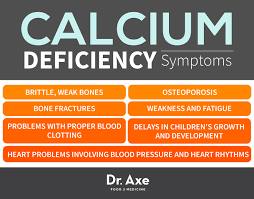Thyroid causes Irregular periods 7
Thyroid causes Irregular periods 7
My memories
Thyroid causes Irregular periods 7
Posted in 2015
Most of woman neglect their periods problem due to various reasons such as education, profession or other. At the time of conceiving problem they visit to various hospitals for solution. Finally they will test their thyroid gland.
God has created our body to function well for 100 years provided we follow healthy habits. Till today no health specialist or doctor explain healthy habits, to protect Thyroid Gland. I am receiving various messages around world how to solve their period problem, thyroid problem so that to have Healthy child. Let me discuss one by one.
4. HYPOTHYROIDISM SYMPTOMS 1
The symptoms of hypothyroidism vary widely; some people have no symptoms, while others have dramatic symptoms or, rarely, life-threatening symptoms. The symptoms of hypothyroidism are notorious for being nonspecific and for mimicking many of the normal changes of aging. Usually, symptoms are milder when hypothyroidism develops gradually. Symptoms, when caused by hypothyroidism, generally are related to the degree of hypothyroidism. Many patients with mild hypothyroidism are identified on screening tests for potential hypothyroid symptoms but have few or no symptoms that ultimately are attributed to hypothyroidism or respond to treatment of hypothyroidism. In contrast, patients with moderate to severe hypothyroidism are usually symptomatic and improve significantly with thyroid hormone replacement.
5... HYPOTHYROIDISM SYMPTOMS 2
The following list of symptoms are those that may be present prior to treatment; hypothyroid patients on appropriate treatment should no longer be symptomatic. If symptoms persist, they likely have causes other than hypothyroidism.
General symptoms — Thyroid hormone normally stimulates the metabolism, and most of the symptoms of hypothyroidism reflect slowing of metabolic processes. General symptoms may include fatigue, sluggishness, slight weight gain, and intolerance of cold temperatures.
Skin — Hypothyroidism can decrease sweating. The skin may become dry and thick. The hair may become coarse or thin, eyebrows may disappear, and nails may become brittle.
6.... HYPOTHYROIDISM SYMPTOMS 3
Eyes — Hypothyroidism can lead to mild swelling around the eyes. People who develop hypothyroidism after treatment for Graves' disease may retain some of the eye symptoms of Graves' disease, including protrusion of the eyes, the appearance of staring, and impaired movement of the eyes.
7... HYPOTHYROIDISM SYMPTOMS 4
Respiratory system — Hypothyroidism weakens the respiratory muscles and decreases lung function. Symptoms can include fatigue, shortness of breath with exercise, and decreased ability to exercise. Hypothyroidism can also lead to swelling of the tongue, hoarse voice, and sleep apnea. Sleep apnea is a condition in which there is intermittent blockage of the airway while sleeping, causing fitful sleep and daytime sleepiness.
Gastrointestinal system — Hypothyroidism slows the actions of the digestive tract, causing constipation. Rarely, the digestive tract may stop moving entirely.
8... HYPOTHYROIDISM SYMPTOMS 8
Reproductive system — Women with hypothyroidism often have menstrual cycle irregularities, ranging from absent or infrequent periods to very frequent and heavy periods. The menstrual irregularities can make it difficult to become pregnant, and pregnant women with hypothyroidism have an increased risk for miscarriage during early pregnancy. Treatment of hypothyroidism can decrease these risks. (See "Patient education: Absent or irregular periods and "Patient education: Heavy or prolonged menstrual bleeding (menorrhagia)
Myxedema coma — In people with severe hypothyroidism, trauma, infection, exposure to the cold, and certain medications can rarely trigger a life-threatening condition called myxedema coma, which causes a loss of consciousness and hypothermia (low body temperature).
9... HYPOTHYROIDISM SYMPTOMS 9
Pregnancy — Women often need higher doses of T4 during pregnancy. Testing is usually recommended every four weeks, beginning after conception, until levels are stable, then once each trimester. After delivery, the woman's dose of T4 will need to be adjusted again, usually returning to the pre-pregnancy dose.
Surgery — Hypothyroidism can increase the risk of certain surgery-related complications; bowel function may be slow to recover, and infection may be overlooked if there is no fever. If preoperative blood tests reveal low thyroid hormone levels, nonemergency surgery is usually postponed until treatment has returned T4 levels to normal.
I will tell U my opinion on Thyroid....
10... My opinion
1. Without thyroid every woman will lost various nutrients in monthly periods. The parents should take care and provide healthy food to regain nutrients.
2. When woman is suffering from thyroid some more nutrients will be lost. Due to it the woman may face various problems at the time of conceiving as number of nutrients lost which results to abortion, defective births etc..
3. Our body has the property to regain to its original position provided you follow healthy habits.
4. Don't plan for pregnancy until your thyroid problem is cured.
5. Follow healthy habits and test your thyroid frequently so that you will know the benefits of healthy habits.
Your healthy habits will cure your thyroid problem and you can enjoy with your healthy child.
To be continued...Brought to U http://successgain.us
To be continued .....Brought to U http://successgain.us




Comments
Post a Comment